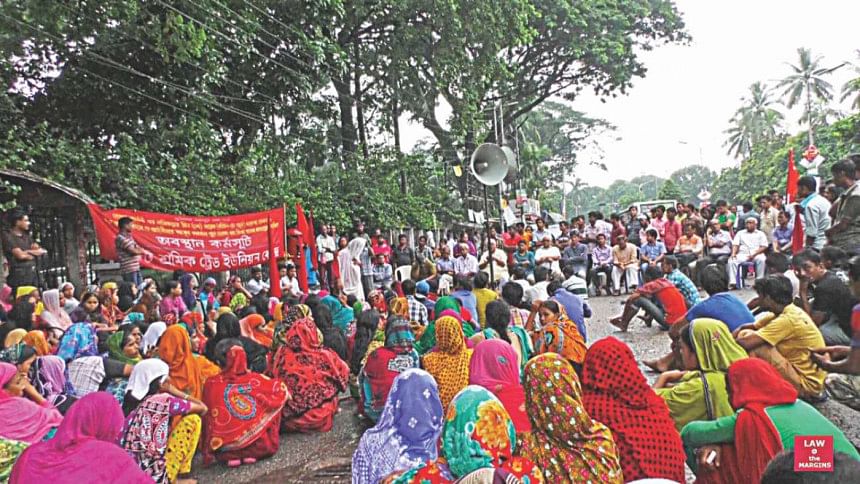The Politics of Art: Chaumtoli Huq's Documentary 'Workers Voices'

"What do you think an artist is? An imbecile, who only has eyes if he's a painter, ears if he's a musician, or a lyre in every chamber of his heart if he's a poet – or even, if he's a boxer, only some muscles? Quite the contrary, he is at the same time a political being constantly alert to the horrifying, passionate or pleasing events in the world, shaping himself completely in their image. How is it possible to be uninterested in other men and by virtue of what cold nonchalance can you detach yourself from the life that they supply so copiously? No, painting is not made to decorate apartments. It's an offensive and defensive weapon against the enemy." (Pablo Picasso)
'Sramik Awaaz: Workers Voices', a short documentary by Chaumtoli Huq, a social justice innovator, based in New York, and Bangladeshi film maker Mohammed Romel, screened at the EMK Center on June 13, 2017, is all about the brave women of Bangladesh, fighting for their lawful rights as garment's factory workers and about the challenges faced by them. But, the event that morning was more about the intersection of human rights and arts that together creates a unique paradigm for activism. Huq was granted a fellowship by the American Institute for Bangladesh Studies (AIBS) to research women in the garment's industry, from 2014 to 2015. She strongly felt that visual images of her dialogues with the women workers would have a more powerful impact than tomes of written research papers. Since then her documentary has been screened in London, Australia and seven cities of USA, receiving strong and positive reactions, thus proving her point.
The hour-long film includes in-depth interviews of women leaders within the garments industry, while presenting the obstacles they need to overcome to take up these civic roles.
Appropriately the post-screening discussion between Huq, Taslima Akhter - photographer of the famed image of the embracing couple within the Rana Plaza debris, scholar cum dancer -Lubna Marium, and Meher Niger - Executive of AIBS, tackled the issue of politicized art and its effectiveness in addressing human rights issues.
Critical theorist Theodor Adorno famously wrote that, 'all art is an uncommitted crime'. What he meant was that as an exemplar of free subjective expression, art challenges the status quo by its very nature. To the extent that this is true, all art is political, representing a particular point of view and, in fact, often verging towards propaganda. The endeavor is to find a fine balance between the two, with the hope that each artistic work acts to evoke and stimulate a critical stance towards the world.
Taslima emphatically stated that her camera was a tool for political activism, as images speak louder than words. Her goal, she said, was to show the world, through her images, the struggles of the laborers, in a worldthat commodifies them and forgets that they are human. Lubna Marium, expounding on the principle that 'art is a site for transformation', explained that creative endeavors are outside the purview of the real world and belong to an extra-empirical domain where real-world emotions are superseded by an inner apperception and awareness. To this Huq responded by sharing the reactions of white, male construction workers, in USA, who when shown 'Sramik Awaaz', immediately empathized with the women garments workers of Bangladesh by stating, 'We feel that these are our sisters'. Indeed, a powerful response. Meher Niger professed her satisfaction with the fact that AIBS fellows were addressing women's leadership issues through their work. Chaumtoli Huq also informed the gathering that the documentary was being screened for both management and workers of the factories. A smaller version was even being circulated in the mobile phones of the workers.
A woman worker's statement on viewing the film was that for the first time she felt that her life was important. That certainly is a powerful validation of the use of art for social change and the need to continue to do so.

 For all latest news, follow The Daily Star's Google News channel.
For all latest news, follow The Daily Star's Google News channel. 



Comments